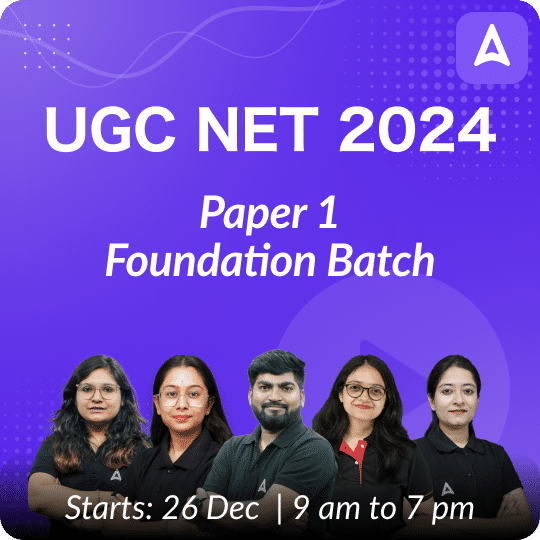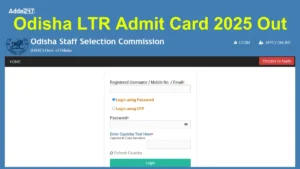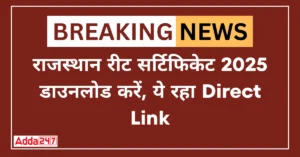Table of Contents
A Ph.D. stands for “Doctor of Philosophy,” which might seem misleading as it encompasses various academic disciplines beyond philosophy. It is the highest level of academic achievement, indicating expertise and original contributions to a specific field of study. Pursuing a Ph.D. involves conducting in-depth research, contributing new knowledge to the field, and defending a thesis or dissertation. The title “Doctor of Philosophy” signifies the pursuit of wisdom and a commitment to advancing knowledge in one’s chosen area of specialization. Therefore, a Ph.D. is not limited to the field of philosophy; it is a prestigious qualification earned through dedication, rigorous study, and significant scholarly contributions.
Is UGC NET Necessary For PhD? Check More Details for PhD Eligibility
What is the PHD Full Form?
The PHD Full Form is Doctor of Philosophy. PhD Holders are entitled to use “Dr.” before their names officially and they are considered doctors in their respective fields of study. A PhD degree is internationally recognized as the PhD holder has to publish his research to attain the degree.
A PhD course is usually 5 years and the candidates have to appear for exams and submit their thesis and finally complete and submit their entire thesis and research which is subject to the approval of the university.
UGC NET Revises Rules For PhD Admissions
Eligibility Criteria for PHD
Check out the Eligibility Criteria to apply for a PhD degree. The candidates will find it easier to prepare and apply for a PhD if they exactly know what are eligibility criteria.
- Candidates can only pursue a PhD course if they have completed their Master’s degree with a 55% mark in aggregate in a particular field or course or stream where they intend to start a PhD.
- Nonetheless, several colleges require that candidates fulfil the qualifications they offer for PhD programs whether they have cleared UGC NET.
- Candidates who wish to pursue a PhD in Engineering must have a justifiable GATE score.
UGC NET Vs JRF: What Is The Difference Between UGC NET & JRF?
Some of the Popular PhD Courses
Here are some of the subjects popular PhD courses applied for the PhD aspirants are mentioned down below. However, there are many other subjects which are applied by the PhD aspirants as well.
- Engineering
- Biochemistry
- Biotechnology
- Chemistry
- Accounting
- Economics
- Finance
- Management of Health Care
- Organizational Behavior
- Statistics
- Physics
- Mathematics
- Journalism
How to Become a Professor in India, Qualification & Age Limit?
Some PHD Entrance Tests
Here is a list of some PHD Entrance Tests available in India. The candidates can apply for these entrance exams to get into a PhD course in various Universities in India
- CSIR NET.
- UGC JRF.
- SET/ SLET.
- IISc PhD Entrance Exam.
- TISS-RAT.
- JNU Entrance Examination.
- DUET.
- GATE.
- BHU – Research Entrance Test.
How to Apply for PhD?
Candidates can follow the below-mentioned instructions to apply for a PhD.
- Candidates either apply online or offline depending on the University they are applying for.
- The online PhD admission form has to be filled out on the website of the university/ college.
- After filling out the online application form, all the necessary documents have to be furnished as required.
- After completing the formality of filling out the application form, the candidates will have to sit for the PhD entrance examination as required by the college/ university.
- After you have passed the PhD entrance test, you will be called for an academic doctoral interview at the university/ college.
- The admission of the candidates depends on how they performed at both stages of the process – the PhD entrance test & the academic doctoral interview.
- Once the candidates have satisfactorily completed and cleared these stages, they will be offered a seat at the university/ college to pursue a PhD in their specialization.
Why Pursue PhD?
The benefits of pursuing a PhD extend beyond personal achievement. PhD holders often play a crucial role in driving innovation, shaping policy decisions, and contributing to the advancement of society as a whole. Their expertise and research findings have the potential to address real-world problems, create new technologies, and improve our understanding of complex phenomena. Moreover, the critical thinking, analytical skills, and intellectual independence developed during the PhD journey are invaluable assets that can be applied to various professional fields.




 RRB Teacher Application Status 2025, Che...
RRB Teacher Application Status 2025, Che...
 OSSC LTR Mains Admit Card 2025 Out, Step...
OSSC LTR Mains Admit Card 2025 Out, Step...
 REET Certificate 2025 Download link Out ...
REET Certificate 2025 Download link Out ...




